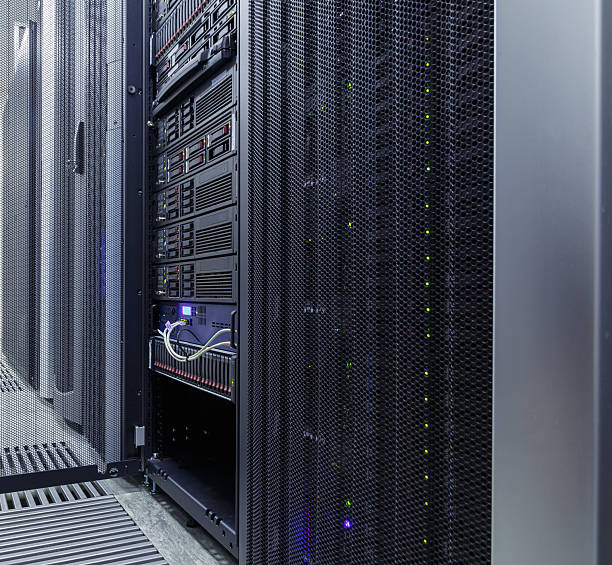Large retail chains operate with complex and extensive data requirements, necessitating robust solutions for managing and storing vast amounts of information. Network Attached Storage (NAS) systems have become a key component in addressing these needs, offering scalable and efficient data management solutions. This article explores how NAS systems effectively handle data storage for large retail chains, highlighting their benefits and functionalities.
Centralized Data Management
In large retail chains, data is generated from various sources, including point-of-sale (POS) systems, inventory management, customer databases, and financial transactions. NAS systems provide a centralized data management solution that consolidates all this information in one accessible location. This centralization simplifies data organization and retrieval, allowing for more streamlined operations.
Centralized storage also facilitates easier management of data backups and archiving. Retail chains can ensure that critical information is systematically backed up and stored, reducing the risk of data loss and ensuring business continuity. By centralizing data, NAS systems enhance the efficiency of data management practices across the entire retail network.
Scalability for Growing Data Needs
As retail chains expand, so do their data storage needs. NAS systems are designed to scale with the growth of data, making them an ideal solution for large retail organizations. Modern NAS solutions offer the flexibility to expand storage capacity by adding additional drives or integrating new units into the existing system.
This scalability is crucial for accommodating increasing volumes of transactional data, inventory records, and customer information. Retail chains can easily upgrade their storage infrastructure without disrupting operations or facing limitations due to inadequate storage capacity. The ability to scale storage ensures that NAS systems can support the evolving data requirements of growing retail businesses.
High-Speed Data Access and Performance
Efficient data access is vital for large retail chains, where timely retrieval of information impacts operational efficiency. NAS systems are equipped with high-speed data access capabilities, which enhance performance and ensure rapid retrieval of large datasets. Advanced technologies such as caching, indexing, and optimized data paths contribute to faster data access.
High-speed data access is particularly important for POS systems, where real-time processing of transactions and inventory updates is required. NAS systems ensure that data is readily available for immediate use, reducing wait times and supporting smooth transactional processes. The improved performance of NAS systems contributes to the overall efficiency and effectiveness of retail operations.
Data Security and Compliance
Retail chains handle sensitive information, including customer data, payment details, and financial records. Ensuring the security and compliance of this data is paramount. NAS systems offer comprehensive security features that protect against unauthorized access and data breaches.
Access control mechanisms allow retail chains to set permissions and restrict access to specific files and folders, ensuring that only authorized personnel can view or modify sensitive information. Encryption capabilities protect data both at rest and in transit, safeguarding it from potential threats. Additionally, NAS systems often include auditing and monitoring tools to track data access and changes, supporting compliance with data protection regulations.
Efficient Data Backup and Recovery
Data backup and recovery are critical components of a robust data management strategy for large retail chains. NAS systems provide reliable backup solutions that ensure data is consistently and securely backed up. Automated backup schedules can be configured to regularly capture changes and updates, minimizing the risk of data loss.
In the event of data corruption or accidental deletion, NAS systems offer recovery options that facilitate the restoration of lost or damaged files. This capability is essential for maintaining business continuity and protecting against data loss. By integrating efficient backup and recovery solutions, NAS systems help retail chains safeguard their valuable data assets.
Integration with Retail Systems
Large retail chains often utilize a variety of systems and applications for managing their operations, including inventory management software, CRM systems, and financial platforms. NAS systems are designed to integrate seamlessly with these retail systems, enabling smooth data flow and interoperability.
Integration with retail systems allows NAS to serve as a central repository for data shared across different applications. This connectivity enhances the efficiency of data management by ensuring that information is consistently updated and accessible across all systems. The ability to integrate with existing retail technology supports a cohesive and unified data management approach.
Supporting Business Intelligence and Analytics
Data analytics and business intelligence (BI) are crucial for large retail chains to make informed decisions and optimize operations. NAS systems support BI and analytics by providing a reliable and high-performance storage solution for large datasets used in analytical processes.
Retail chains can store and access historical data, sales trends, and customer insights on NAS systems, enabling advanced analysis and reporting. The scalability and performance of NAS systems ensure that analytical tasks are executed efficiently, supporting data-driven decision-making and strategic planning.
Conclusion
Network Attached Storage (NAS) systems offer a comprehensive solution for managing data storage in large retail chains. With their centralized data management, scalability, high-speed access, and robust security features, NAS devices address the complex data needs of retail organizations. The integration with retail systems and support for business intelligence further enhance the effectiveness of NAS in optimizing retail operations. As retail chains continue to evolve, NAS systems will remain a valuable asset in managing and leveraging their data resources effectively.





Comments